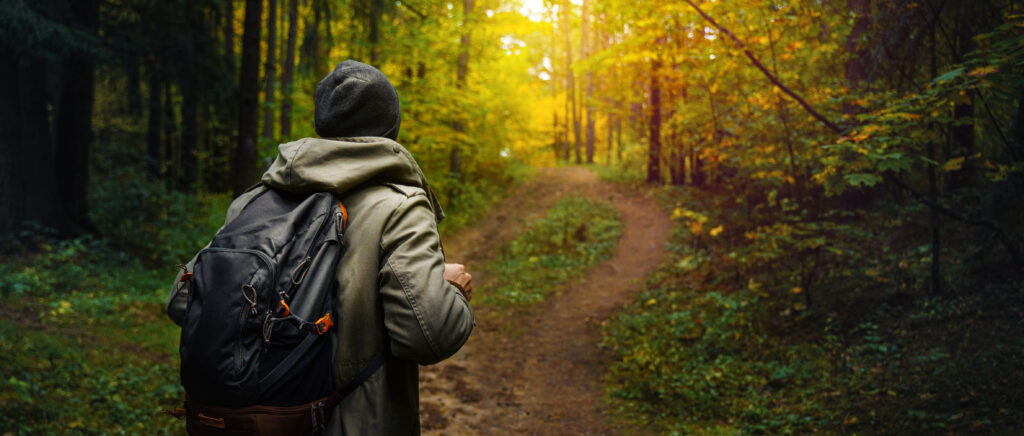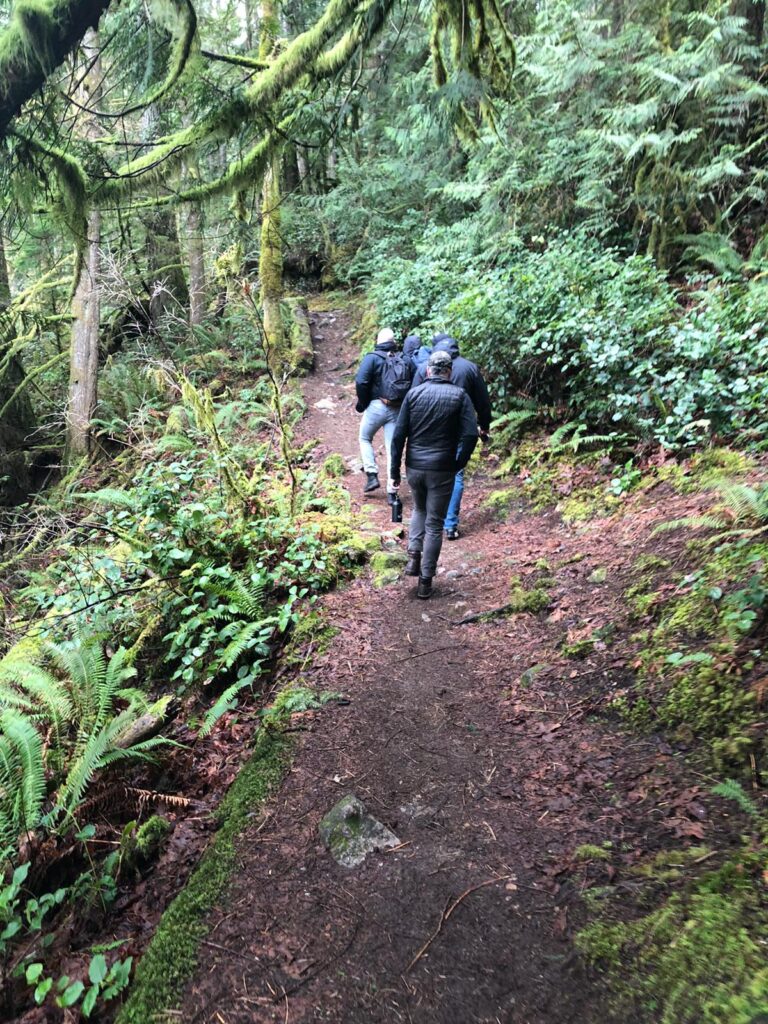There are many ways to approach treatment for addictions and mental health. At Sunshine Coast Health Centre and Georgia Strait Women’s Clinic, we believe in taking an approach that is holistic and makes use of many different types of resources and opportunities. Over the years, we’ve found that many of the people who use our services enjoy and benefit from outdoor adventure and recreational opportunities, including mild to moderate hikes.
What is Hiking Therapy?
Hiking therapy is a wellness activity that involves hiking outdoors in a fun and safe way. It is sometimes referred to as outdoor or adventure therapy. These terms also include other adventures outside of hiking, such as mushroom picking or stand-up paddleboarding. In this article, we will explore the ways that hiking can support people who are struggling with addictions and mental health.
So, how does hiking support mental health and addictions treatment? Read on to find out!
1. Hiking Gets You Outside
More and more research is confirming what we already suspect—that spending time outdoors is a physiological and psychological need for our species.
Hiking outdoors provides you with a lot of health benefits. For starters, it provides you with the opportunity to get some fresh air. This can help increase oxygen to your blood and organs, especially when coupled with exercise.
Research also shows that forest air has medicinal properties, beyond just being high in oxygen and low in pollutants. A therapeutic method known as shinrin-yoku (from Japanese “forest bathing”) makes use of the restorative properties of that delicious woodsy aroma.
What’s more, getting a little bit of natural sunlight on a regular basis can help you increase your vitamin D levels. It’s no wonder there is a growing trend in doctors prescribing walks in the woods!

2. Hiking is Good Exercise
From the standpoint of increasing physical activity in our daily life, hiking is a true gift.
We already know that exercise can be supportive for people living with addictions and mental health issues. It helps us boost our mood and even manage pain. Regular exercise can improve bone health, overall cardio-respiratory fitness, and even help promote better sleep. These benefits are particularly important in addiction recovery, as sleep patterns are often disrupted.
Hiking is fairly low-impact. It doesn’t place the same kind of stress on the joints as something like running. Hiking doesn’t have the same risks of injury associated with higher-intensity workout options (though it’s certainly not a risk-free activity).
What’s more, running or going to the gym can be a hard sell when you’re feeling down in the dumps. But by putting one foot in front of the other (literally!), you can make use of hiking to achieve your exercise goals and achieve a healthier body and mind.
3. Changes Your Mindset
Hiking can be a great opportunity to clear your head and soothe your worries. Being out in the woods gives you a chance to see different places, shapes, colours, and patterns and to think about things in a different way.
The increased oxygen to your brain can also help support your brain health and alleviate stress, as can the endorphins that are released when you exercise.
There’s something really special about hiking in a beautiful place or getting to a stunning viewpoint. There’s also something to be said about stopping to smell the roses, or enjoying the repetitive rhythm of the hike itself.
What’s more, hiking can help you build confidence, as it is a skill that you can grow. It’s always good to start small and work up to a more challenging hike. There’s nothing like the feeling of achieving a hike at the edge of your comfort zone!
4. An Activity You Can Do Outside of Treatment
As we mentioned earlier, hiking can be incorporated into treatment for addictions and mental health. Unlike many other treatment services, hiking is something you can take with you.
What’s more, hiking can also be a great way to connect with peers for post-treatment peer support. It’s a great way to get to know new people during and after treatment.
At Sunshine Coast Health Centre, we work with clients individually to create a Post-Treatment Care Plan with individualized and relevant resource lists. This includes hobbies and activities that can support clients post-treatment, such as hiking.
By finding supportive activities and connecting with peers, clients can work towards reducing the likelihood of continued use after leaving treatment.
Outings at Sunshine Coast Health Centre and GSWC
Here at SCHC, we are very fortunate to have access to literally hundreds of trails in Powell River and the qathet Region, including fantastic day hikes along the Sunshine Coast Trail, Canada’s longest hut-to-hut hiking trail. Clients in both our facilities are offered weekly hikes and trail walk around the region.


Hiking therapy is not something that we see or promote as a stand-alone therapy. However, hiking can be a great complement to a recovery program. At SCHC and GSWC, we promote hiking to our clients as a recovery activity and facilitate hikes all through the year.
For more information about our recreation opportunities and how hiking fits into our holistic approach to recovery from addictions and mental health, contact us today.



